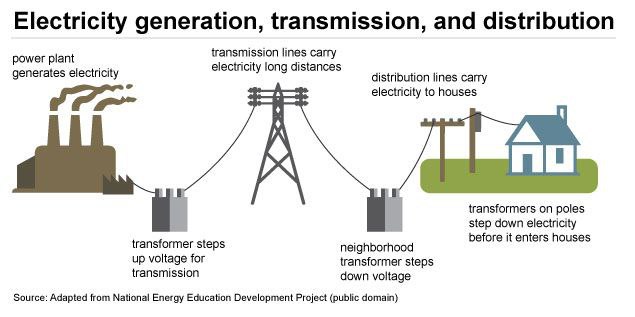
The necessity of electricity distribution companies
The Electricity Act 2003 provided the framework for the dismantling of the State Electricity Boards and the separation of generation, transmission and distribution I separate companies. Electricity generation was delicensed, while transmission and distribution were regulated.
The necessity of electricity distribution companies
The Electricity Act 2003 provided the framework for the dismantling of the State Electricity Boards and the separation of generation, transmission and distribution I separate companies. Electricity generation was delicensed, while transmission and distribution were regulated.
In the recent years, the share of private investment in generating capacity has grown rapidly. The impressive growth in renewable power is also a result of the private capital. Tariff-based bids for the supply of electricity to Discoms has been key in the National Solar Mission.
The Discom has the universal service obligation of supplying electricity to meet the demands of all consumers in its license area. To meet the projected demand growth, discoms enter into long-term power purchase agreements (PPAs). Power-generating capacities have risen rapidly, and the power supply position has become comfortable.
The completion of rural and household electrification is also a success worth mentioning.
The Electricity Act gives consumers with a load of 1MW and above the right to open access enabling them to buy electricity from whomever they choose to and pay the Discom only for the use of their network and a cross-subsidy surcharge. Higher-end industrial and commercial consumers pay more and cross-subsidise the lower-end households whose tariffs are less. However, the mandate in the Act to the State Electricity Regulatory Commissions to progressively reduce cross-subsidies remains unimplemented. This has resulted in the surcharge continuing and acting as a barrier. Large consumers are not meeting their electricity needs and discoms are left with a surpluses.
Discoms are seen as the weak link in the supply chain, with rising cumulative losses and an inability to pay generators on time. It is also a result of the inability of State regulators to determine cost reflective tariffs. Seeking privatization in some states, like in Delhi, can be a solution to this inherent issue of economic misgovernance.
The energy transition to renewable is also based on discoms projecting demand and entering PPAs. Without new investment in discoms, this edifice might collapse resulting in power shortage. States would have to invite bids, while assuring bidders for the payment differences whenever the market price falls below their bid price.
The above reforms can help States in furtherance of their objective of promoting competition, protecting consumer interests, and the supply to electricity to all consumers.
